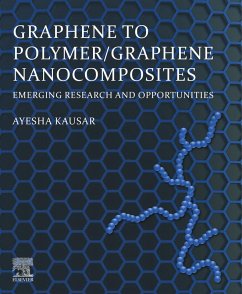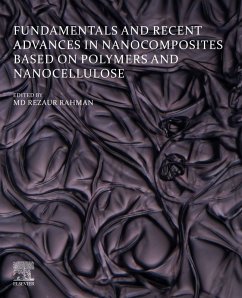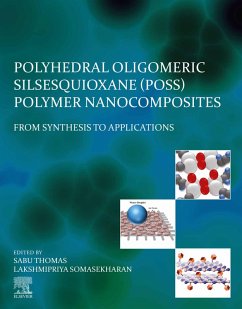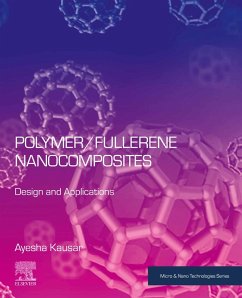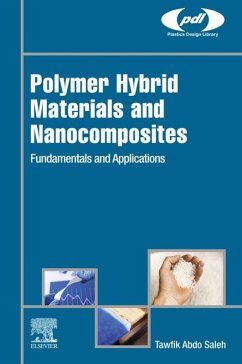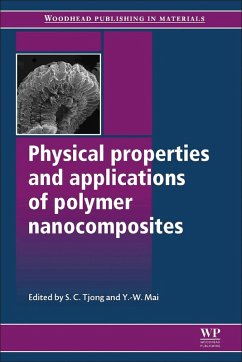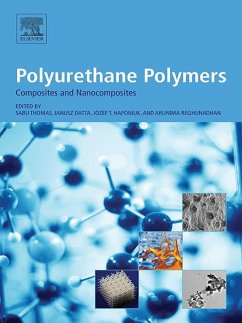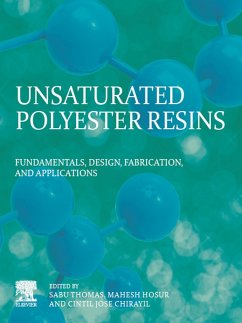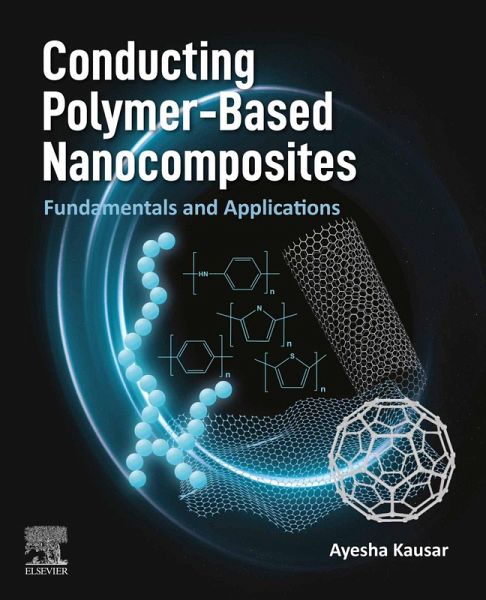
Conducting Polymer-Based Nanocomposites (eBook, ePUB)
Fundamentals and Applications

PAYBACK Punkte
69 °P sammeln!
Conducting Polymer-Based Nanocomposites: Fundamentals and Applications delivers an up-to-date overview on cutting-edge advancements in the field of nanocomposites derived from conjugated polymeric matrices. Design of conducting polymers and resultant nanocomposites has instigated significant addition in the field of modern nanoscience and technology. Recently, conducting polymer-based nanocomposites have attracted considerable academic and industrial research interest. The conductivity and physical properties of conjugated polymers have shown dramatic improvement with nanofiller addition. Appr...
Conducting Polymer-Based Nanocomposites: Fundamentals and Applications delivers an up-to-date overview on cutting-edge advancements in the field of nanocomposites derived from conjugated polymeric matrices. Design of conducting polymers and resultant nanocomposites has instigated significant addition in the field of modern nanoscience and technology. Recently, conducting polymer-based nanocomposites have attracted considerable academic and industrial research interest. The conductivity and physical properties of conjugated polymers have shown dramatic improvement with nanofiller addition. Appropriate fabrication strategies and the choice of a nanoreinforcement, along with a conducting matrix, may lead to enhanced physicochemical features and material performance. Substantial electrical conductivity, optical features, thermal stability, thermal conductivity, mechanical strength, and other physical properties of the conducting polymer-based nanocomposites have led to high-performance materials and high-tech devices and applications. This book begins with a widespread impression of state-of-the-art knowledge in indispensable features and processing of conducting polymer-based nanocomposites. It then discusses essential categories of conducting polymer-based nanocomposites such as polyaniline, polypyrrole, polythiophene, and derived nanomaterials. Subsequent sections of this book are related to the potential impact of conducting polymer-based nanocomposites in various technical fields. Significant application areas have been identified for anti-corrosion, EMI shielding, sensing, and energy device relevance. Finally, the book covers predictable challenges and future opportunities in the field of conjugated nanocomposites. - Integrates the fundamentals of conducting polymers and a range of multifunctional applications - Describes categories of essential conducting polymer-based nanocomposites for polyaniline, polypyrrole, polythiophene, and derivative materials - Assimilates the significance of multifunctional nanostructured materials of nanocomposite nanofibers - Portrays current and future demanding technological applications of conjugated polymer-based nanocomposites, including anti-corrosion coatings, EMI shielding, sensors, and energy production and storage devices
Dieser Download kann aus rechtlichen Gründen nur mit Rechnungsadresse in A, B, BG, CY, CZ, D, DK, EW, E, FIN, F, GR, HR, H, IRL, I, LT, L, LR, M, NL, PL, P, R, S, SLO, SK ausgeliefert werden.






